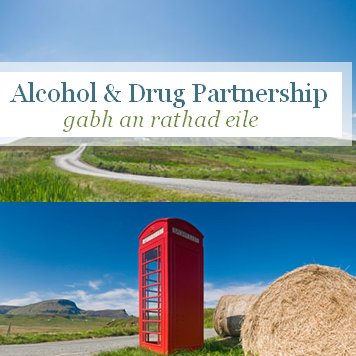
The Outer Hebrides Alcohol and Drug Partnership (OHADP) launches its winter campaign this month, with a focus on reducing stigma and improving recovery.
Alcohol and drugs continue to be a major issue nationally, with 1,187 drug related deaths in Scotland in 2018 (latest figures); the highest number ever recorded.
There were 1,136 alcohol specific deaths in 2018, with 23,751 people admitted to hospital as a result of consuming alcohol during 2018/19.
Here in the Outer Hebrides, recent data shows there were two drug related deaths in 2018 with an annual average of two between the years 2014-2018 and 13 alcohol specific deaths in 2018 with an annual average of 11 between 2014 and 2018. There were 192 people admitted to hospital as a result of consuming alcohol during 2018/19.
The OHADP is a multi agency partnership which exists to prevent and reduce the harmful effects of alcohol and drugs in our community, to promote sustained recovery and deliver better outcomes for those affected.
The 2018 Scottish Government ‘Rights Respect & Recovery’ Strategy’s vision is that Scotland is a country where ‘we live long, healthy and active lives regardless of where we come from’ and where individuals, families and communities have the right to health and life free from the harms of alcohol and drugs; be treated with dignity and respect; and are fully supported within communities to find their own type of recovery.
Recovery is defined by individuals who have reclaimed their lives and are productive and active members of society. The Director of the UK Recovery Federation recognised that recovery becomes contagious within communities when it is visible.
Each and every individual should be proud of what they have achieved. When others can see the hope and inspiration, this can encourage those still struggling to look towards a brighter future.
OHADP Development Officer, Angela Grant, commented: “Nobody chooses to become dependent on alcohol or drugs, but most importantly, people can and do recover from alcohol and drug use. Recovery is a process of change through which individuals improve their health and wellness, live a self-directed life, and strive to reach their full potential, supporting and encouraging those individuals as they embark upon their personal journey. There is hope. It is time to applaud those that are on the recovery journey. This should be celebrated, and people not made to feel ashamed. As a community we need to embrace all those individuals and let them know we are here to help.”
Be aware of the dangers
For the person who has not yet admitted they may be drinking at a harmful level or perhaps not accepting they are dependent on substances such as drugs, prescribed medication or alcohol, it is important that they are able to identify those who are already on their recovery journey. Changing the way you drink can help to reduce your health risks. If you intend to drink you should drink no more than 14 units a week on a regular basis and make sure you spread your drinking over three or more days and have three or more alcohol-free days each week.
Other useful tips to reduce the amount of alcohol consumed include avoiding double measures and alternating an alcoholic drink with one or more alcohol-free drinks. Consider swapping high strength beers and wine for a lower strength (check the ABV% on label) and diluting your drinks with low calorie mixers. Have a smaller glass, or bottled beer which is not as strong as some lagers or why not try a mocktail (non-alcoholic drink) when you’re out!
You can also keep track of your alcohol consumption, units and calories by visiting the Scottish Government website www.Count14.scot or download the Track and Calculate Units App: www.drinkaware.co.uk
The links to other sites provides information on advice on drugs and alcohol and their risks https://knowthescore and https://www.nhsinform.scot/healthy-livi…/…/where-to-get-help
Unfortunately stigma remains the biggest barrier to people accessing services. People with alcohol and drug problems can be some of the most excluded people in society, especially from those in the community, media and services. People who use substances fear being judged because of their dependency so don’t seek out the help or treatment they require for fear of embarrassment or discrimination.
The recently published report by the Dundee Drugs Commission made a recommendation that the online leaflet ‘Language Matters’, developed by the Network of Alcohol and other Drugs Agencies (NADA) in Australia, is promoted at all opportunities https://nadaweb.azurewebsites.net/resourc…/language-matters/
Changing how we communicate by using more respectful and inclusive language helps. Be more aware of the words we use, for example, change using the word ‘addict’ or ‘druggie’ to ‘a person with a dependence’ or change ‘alcohol or drug abuse’ to ‘a person who uses’. Stop negative attitudes and help with the behaviour change. Let’s all change.
We can make a difference together in the Outer Hebrides Here in the Outer Hebrides we can make a difference. By our communities coming together and tackling the issues of stigma and discrimination, will ensure that those individuals will have the courage to seek the help they need and not feel stigmatised because of their dependency. An individual’s drug or alcohol use can be isolating and distressing for families, friends and work colleagues. By reducing stigma we can ensure that everyone is able to access support, including families and children so they are safe, healthy and supported.
Here to help
If you or someone you know may be drinking too much or you are worried about someone’s drug taking and it is causing you concern, speak to your GP, other health professional or one of the alcohol agencies locally.
If you would like further information on services available check our online Outer Hebrides Alcohol and Drug Partnership Recovery Support Services Directory at https://www.outerhebadp.com/services/our-services/ or contact the ADP Support Team on 01851 762022.
